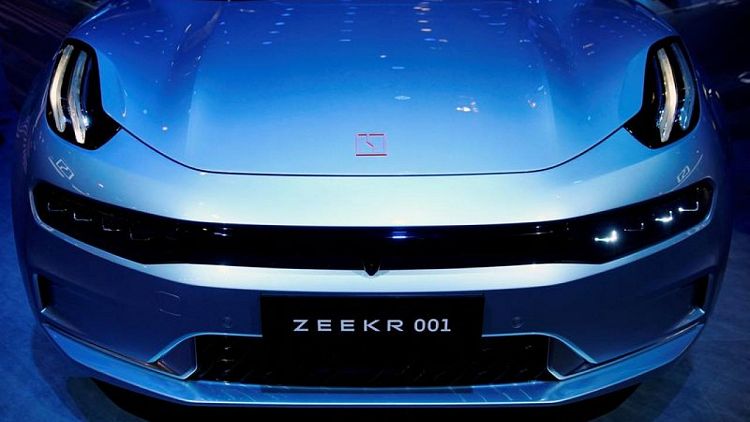By Stephen Nellis
- Intel Corp's autonomous driving unit, Mobileye, said on Tuesday it plans to work with Geely Holding-backed Zeekr to launch in China what the companies claim will be the world's first mostly self-driving car in 2024.
The two companies said at the Consumer Electronics Show in Las Vegas that the car will have what automotive engineers call level 4 autonomy, meaning that it will still have a steering wheel and require a licensed driver but will be able to drive itself in many situations. It will use six of Mobileye's "EyeQ 5" chips and also employ Mobileye's road-mapping data.
Intel, which is hungry for cash to build chip factories and racing to catch up with rivals like Taiwan Semiconductor Manufacturing Co that have taken away Intel's lead in making the fastest chips, said last month it plans to spin out a portion of Mobileye in an initial public offering. Geely, the fast-growing Chinese automaker, has recently explored manufacturing cars in Korea that could be exported to the United States duty-free, Reuters reported last month.
Mobileye on Tuesday also said that it is deepening its relationship with Ford Motor Co. The two firms said that Ford will use Mobileye's road-mapping data system, which is drawn from all vehicles on the road with Mobileye hardware, in future versions of Ford's "BlueCruise" that allows hands-free driving in some situations.
Mobileye said that Volkswagen AG will also start using some of its mapping data products for Volkswagen's driver-assistance features, such as automated lane keeping.
Mobileye on Tuesday also unveiled the next generation of its flagship computer chip, which will be called the "EyeQ Ultra" and is designed to use minimal electricity, which is becoming more important as self-driving systems compete with drive trains for limited battery capacity in electric vehicles. The company said that prototypes of the chip will be ready next year, with automotive production of the chips expected in 2025.



